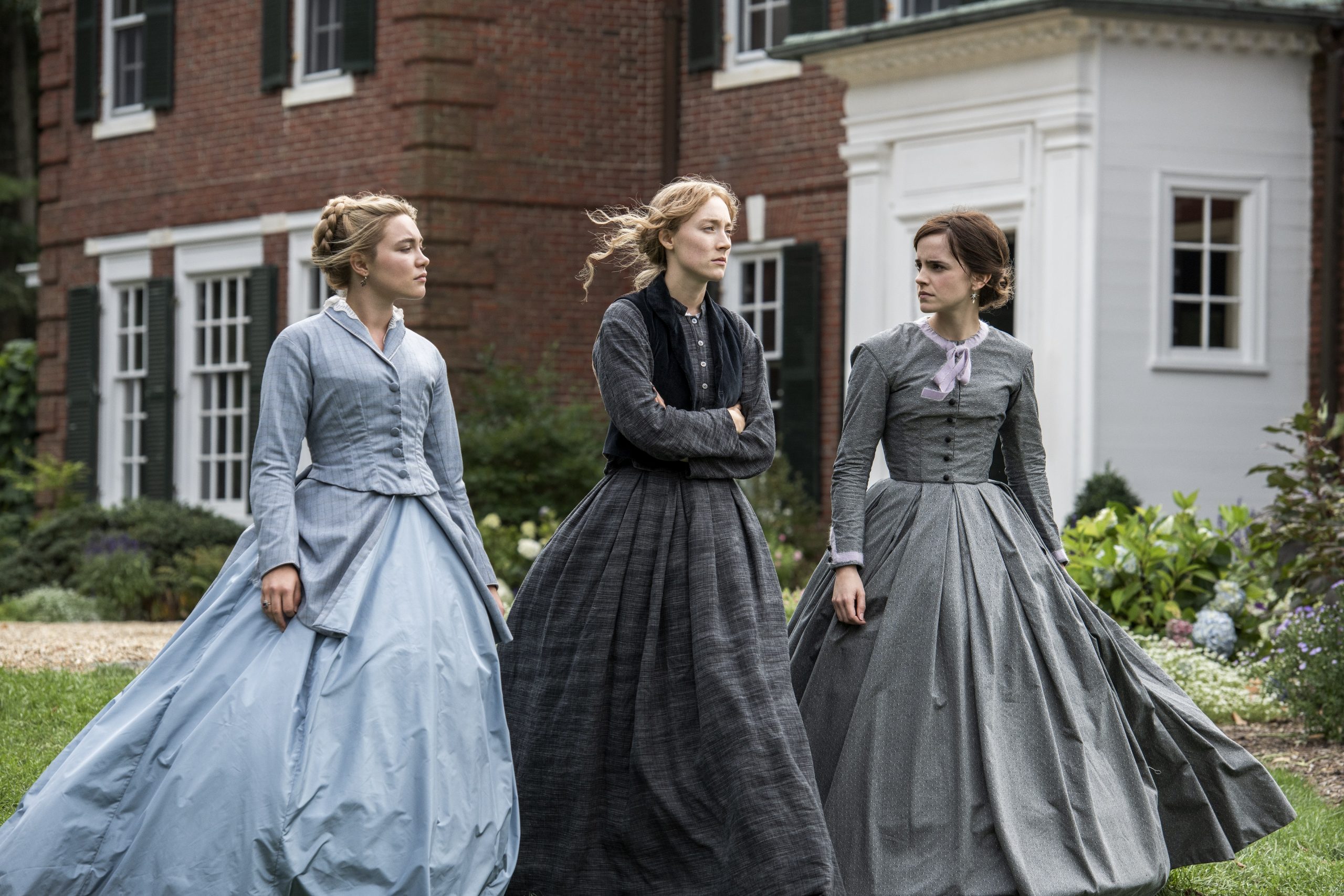
Little Women is another re-telling in a long line of adaptations of the beloved two-volume novel by author Louisa May Alcott.
Maybe it’s because of my childhood–you know, the whole growing up with the wrong body–but I wasn’t able to really connect with the film upon my first viewing a few weeks ago. Upon second viewing, I found it to be a much stronger film. Of course, I still have issues with never-ending remakes but this is beside the point. If you’re counting, Greta Gerwig’s version marks the 8th film dating back to 1917.
“If the main character’s a girl, make sure she’s married by the end…or dead,” Mr. Dashwood tells Jo March (Saoirse Ronan) in the film’s opening minutes.
The film hits on so many problems that we’re still finding in contemporary cinema. Maybe this is because the the book is written by a woman and so many films are made by men. We see this by way of Mr. Dashwood (Tracy Letts) and his actions as a publisher. While Mr. Dashwood would go on to publish Jo March’s (Saoirse Ronan) book, his request that the lead character is married or dead at the end. Can one find a happy ending without getting married? Maybe but who knows. I know plenty of women in their 30s or 40s that have yet to marry or have children. I’m also one of them.
As an author, Jo believes in her story. Appropriately, she rebuts the demands for a differenty ending. Interestingly enough, Greta Gerwig’s screenplay gets rather creative with the retelling. Honestly, it isn’t going to go the way you think it will. Rather than an outright adaptation, Gerwig mixes things up and doesn’t stick with chronological order. This is perfectly fine because we need to see an ounce of freshness for the gazillionth retelling.
“I suppose marriage is economic proposition even in fiction,” Jo reluctantly responds when Mr. Dashwood pressures her to end the book with a wedding.
For context, the book is a product of the post-Civil War 19th Century. Compared to the 21st Century, the two eras couldn’t be different. Women were expected to stay at home and take care of children. Nobody expected women to have a job much less choose to be an author. This isn’t to take away from the feminist message because the feminism is strong in this one. After all, it’s about the March sister! At the same time, this is a film about creating our own stories, which is what Jo wants to do as an author. Unfortunately, she’s working with a publisher that would rather she create stories that can sell.
Greta Gerwig’s decision to retell this story certainly makes for a timely film. It’s also a film that is led by women. The March sisters–Jo, Meg (Emma Watson), Amy (Florence Pugh), and Beth (Eliza Scanlen)–are are strong in their own right. Like any family member, they all have their share of fights. You can’t help but feel for the family when Beth contracts an illness.
What makes me sad is that there are men working as film critics and outright refusing to see this film. Listen, it’s understandable to decline an assignment to write about the film and let a woman do so. However, this film is an awards contender. To not see the film because of its feminist message sends a different message to women filmmakers and story tellers. It says that our stories aren’t ever going to be good enough. That’s just wrong.
Little Women is the type of film that won’t only improve with time but also on repeat viewings.
DIRECTOR/SCREENWRITER: Greta Gerwig
CAST: Saoirse Ronan, Emma Watson, Florence Pugh, Eliza Scanlen, Laura Dern, Timothée Chalamet, Tracy Letts, Bob Odenkirk, James Norton, Louis Garrel, with Chris Cooper and Meryl Streep




